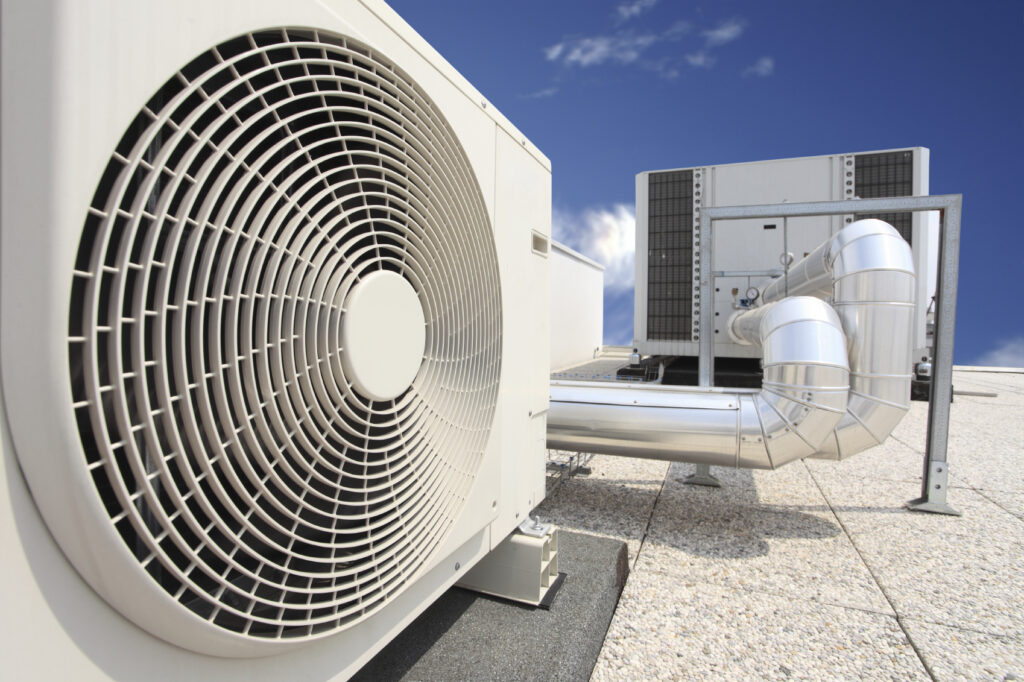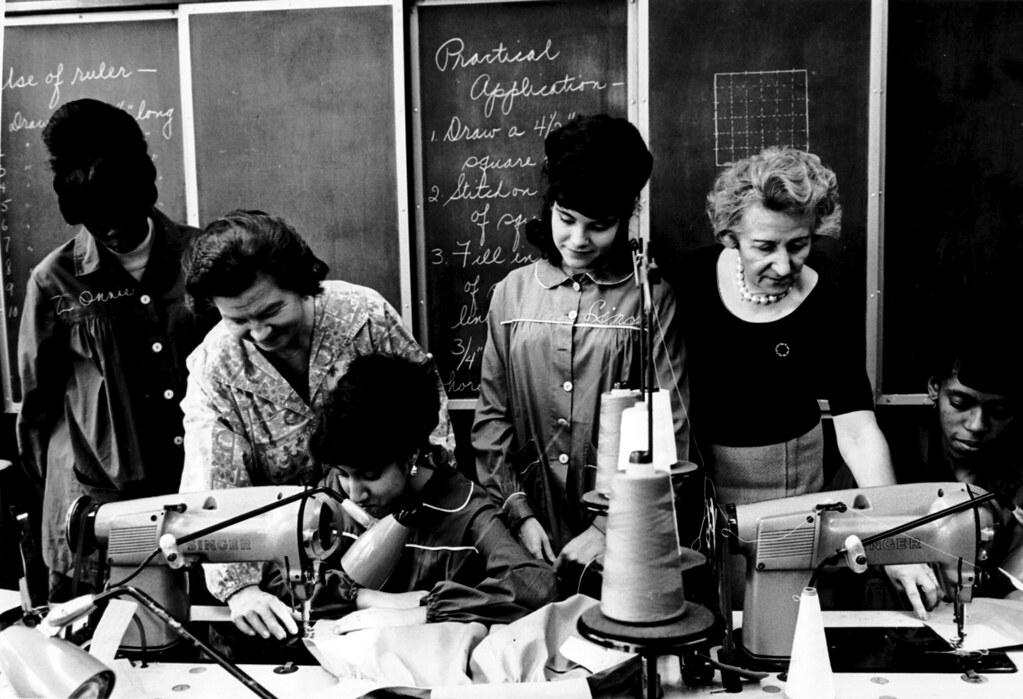Na era moderna, onde a tecnologia e inovação caminham lado a lado com a sustentabilidade, os climatizadores industriais emergem como protagonistas em um cenário onde conforto e eficiência são primordiais. Este artigo visa explorar as facetas multifacetadas dos climatizadores industriais, uma ferramenta indispensável no arsenal de qualquer ambiente industrial.
We will go through the journey from a basic understanding of these systems to discussing their future trends, passing through essential tips for professional electricians and factory managers. Here, we will not only address what industrial air conditioners are and how they work, but we will also delve into the most frequently asked questions that circulate in the minds of professionals in the field.
Vamos desvendar os mistérios da escolha do climatizador ideal, desdobrando os desafios da instalação, os aspectos cruciais da manutenção e os impactos significativos na qualidade do ar e na eficiência energética. Além disso, vamos examinar as regulamentações relevantes e as inovações tecnológicas que estão moldando o futuro desses sistemas.
Com uma linguagem acessível e informações detalhadas, este conteúdo é um guia indispensável para todos aqueles que buscam entender melhor os climatizadores industriais. Então, seja você um eletricista experiente, um gerente de fábrica procurando otimizar seu ambiente de trabalho, ou simplesmente alguém interessado em aprender mais sobre essa tecnologia vital.
Embark with us on this informative journey and discover how industrial air conditioners are redefining comfort and efficiency in industrial environments.

What are Industrial Air Conditioners?
First of all, let's understand what these cooling giants are. O Industrial air conditioner is equipment designed to refresh and improve air quality in large spaces, such as factories and warehouses. It's as if nature said hello, with a light breeze, but in the form of a machine. They are, without a doubt, the invisible heroes of the industrial summer.
Types of Industrial Air Conditioners
Now, let's talk about types. There are basically two: evaporative and mechanical.
- Evaporatives are like a fine rain on a hot day, refreshing everything around them.
- Mechanical ones, on the other hand, are more like a superhero, using force (in this case, electrical energy) to combat the heat.
Benefits of Industrial Air Conditioners
Furthermore, this equipment brings a lot of benefits. First, they are like an oasis in the desert, offering a more pleasant environment for workers.
This not only improves mood but also increases productivity. And then there's the health thing: cleaner air means fewer illnesses, which is a huge advantage.
Let's put it on the scale now, comparing industrial air conditioners with other systems, such as air conditioning.
Think of a table that shows energy consumption, efficiency, and environmental impact. Air conditioners take the lead in several of these categories, being more economical and eco-friendly.
| Aspect | Industrial Air Conditioners | Air conditioner |
| Energy consumption | Smaller | Bigger |
| Cooling Efficiency | High | Moderate |
| Environmental impact | Low | High |
How to choose the ideal Industrial Air Conditioner?
On the other hand, choosing the ideal air conditioner is not like taking a shot in the dark. You have to consider the size of the space, the type of industrial activity and even the climate region.
It's a game of fitting pieces together, where every detail matters.
- Space Size: The larger the space, the more powerful the air conditioner needs to be.
- Type of Industrial Activity: Some processes generate more heat than others.
- Regional Climate: Wetter or drier places require different types of air conditioners.
Maintenance and Care
Eventually, even air conditioners need a rest and care. Regular maintenance is like taking your car to the mechanic: it prevents major problems and ensures that everything works properly. Cleaning the filters, checking the components and even taking a look at the electrical connections are essential.
Maintenance Tips
- Regular Cleaning: Keeps the air clean and equipment working well.
- Component Check: Prevent unpleasant surprises.
- Be careful with electrical connections: Prevents accidents and ensures efficiency.
Trends and Innovations
Similarly, as in any sector, industrial air conditioners are also evolving.
Novas tecnologias como IoT e inteligência artificial estão entrando em cena, fazendo dos climatizadores verdadeiros robôs do frescor. Eles estão ficando mais inteligentes, eficientes e, acredite se quiser, até mais bonitos!
Frequently asked questions about choosing industrial air conditioners:
Os Climatizadores utilizam a evaporação da água para resfriar o ar, sendo mais econômicos e eco-friendly. Já os ar-condicionados funcionam por compressão de gás refrigerante, oferecendo um controle mais preciso da temperatura. Além disso, enquanto os climatizadores são ideais para espaços abertos ou semiabertos, os ar-condicionados são melhores em ambientes fechados.
How to Determine the Ideal Air Conditioner Size for an Industrial Space?
Para escolher o tamanho ideal, é crucial considerar o volume do espaço e o calor gerado pelas máquinas e processos. Um cálculo detalhado de BTUs (British Thermal Units) é necessário. Além disso, fatores como o número de janelas, portas e a altura do teto também influenciam. Por outro lado, a escolha errada pode resultar em eficiência reduzida e custos mais altos.
What Are the Main Challenges in Installing Industrial Air Conditioners?
Um desafio comum é garantir uma distribuição uniforme do ar. Além disso, a instalação deve considerar o layout da fábrica e evitar interferências com equipamentos. Por outro lado, uma instalação inadequada pode resultar em zonas de calor ou frio, afetando a eficiência do sistema e o conforto dos trabalhadores.
How does preventive maintenance work on industrial air conditioners?
A manutenção preventiva inclui a limpeza regular dos filtros e a verificação de componentes mecânicos e elétricos. Além disso, é importante monitorar o nível de água e a qualidade dos pads evaporativos. Por outro lado, a negligência na manutenção pode levar a falhas no sistema e custos elevados de reparo.
What is the Impact of Relative Humidity on Air Conditioner Efficiency?
Evaporative air conditioners are more efficient in environments with low relative humidity. They add moisture to the air while cooling, which can be beneficial in dry areas. On the other hand, in environments with high humidity, its efficiency decreases, and it may be necessary to combine it with other humidity control systems.
How Can Industrial Air Conditioners Affect Air Quality?
O evaporative industrial air conditioner pode melhorar a qualidade do ar ao filtrar poeira e outras partículas. Além disso, a circulação constante do ar ajuda a reduzir a estagnação. Por outro lado, uma manutenção inadequada pode levar ao acúmulo de bactérias e mofo nos filtros e pads, prejudicando a qualidade do ar.
Are There Any Specific Regulations for the Installation of Industrial Air Conditioners?
Sim, existem normas técnicas e regulamentações locais que devem ser seguidas. Além disso, é importante considerar as diretrizes de segurança e saúde ocupacional. Por outro lado, ignorar essas regulamentações pode resultar em multas e até mesmo em paralisações de atividades.
What Are the Future Trends for Industrial Air Conditioners?
As tendências incluem a integração com sistemas inteligentes de gestão de edifícios e a utilização de tecnologias mais sustentáveis. Além disso, espera-se um aumento no uso de materiais recicláveis e designs mais eficientes energeticamente.
On the other hand, resistance to the adoption of these new technologies can delay environmental and economic benefits.
How Does Geographic Location Influence the Choice of an Industrial Air Conditioner?
The effectiveness of evaporative coolers is greater in dry regions, while in humid areas, they may be less efficient.
Furthermore, factors such as average temperature and seasonal variations are also important. On the other hand, choosing a type that is inappropriate for the region may result in unsatisfactory performance and higher operating costs.
What are the operating costs of an industrial air conditioner?
Operating costs include electricity, water and maintenance. Air conditioners are generally more economical than traditional air conditioners.
Additionally, regular maintenance can help reduce these costs in the long run. On the other hand, lack of maintenance can result in increased energy costs and expensive repairs.
Conclusion
In the same way that technology advances in other areas, air conditioning is no different. Expect to see more integration with automation systems, greater energy efficiency, and designs that better fit into modern industrial spaces.
In conclusion, industrial air conditioners are more than just machines: they are the breath of innovation and comfort in work environments. They not only make the air more pleasant, but also contribute to a more sustainable future.
So the next time you feel a refreshing breeze in a factory, remember: there's a technological superhero working there.




